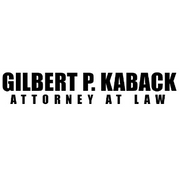
Probate is an official process in which the court oversees the transfer of a testator’s property to their beneficiaries, as outlined in their will. It could take a few months or longer to complete, which is why many people plan their estates to avoid the process altogether. As probate law varies by state, below is an overview of the probate process in Connecticut and some notes on how to avoid it.
What Probate Involves in Connecticut
If a person dies without a will, the court appoints an executor, typically the spouse or an adult child of the deceased. Otherwise, the testator (the person who has made a will) identifies the executor in their will. This person represents the estate, taking inventory and valuating the assets. With supervision from the court, this person is also responsible for making sure all the deceased’s debts are settled and taxes on the estate are paid. The court then issues an order to distribute what’s left of the estate to the notified beneficiaries.
How to Bypass the Process
 According to probate law in Connecticut, if the collective value of assets beneficiaries stand to inherit falls below a certain amount, the estate won’t be subjected to the proceedings. To be considered small, the estate must be valued at $40,000 or less. When determining the monetary value of the estate, this does not include assets that would go to inheritors directly, such as joint property and bank accounts, transfer-on-death deeds, and life insurance policies and retirement plans with named beneficiaries.
According to probate law in Connecticut, if the collective value of assets beneficiaries stand to inherit falls below a certain amount, the estate won’t be subjected to the proceedings. To be considered small, the estate must be valued at $40,000 or less. When determining the monetary value of the estate, this does not include assets that would go to inheritors directly, such as joint property and bank accounts, transfer-on-death deeds, and life insurance policies and retirement plans with named beneficiaries.
With small estates, inheritors are subject to summary probate. This involves filling out paperwork to release assets instead of going through court hearings. In addition to jointly owning property and setting up payable-upon-death designations, you can also put assets in a living trust. This is a way for larger estates to avoid an official hearing under Connecticut’s probate law.
For professional help understanding probate law in Connecticut, contact Gilbert P. Kaback, Attorney at Law in Colchester. For over two decades, this skilled attorney has been helping clients throughout New London County with family law matters, including probate proceedings and litigation for contracts and criminal cases. Call (860) 537-0874 to schedule a consultation, connect online to learn more about his office’s services.
About the Business
Have a question? Ask the experts!
Send your question

